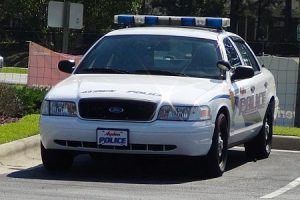 Early this morning I received a phone call from a prospective client who wanted to talk to me about a “speeding ticket” they received last night for going 30 miles per hour over the posted speeding ticket on a local highway. I receive such phone calls from prospective clients almost every day. Very few people calling me for cases like this really understand what they are facing. I have written about cases like this because I handle many cases involving Aggravated or Excessive speeding. These phone calls usually start off with the prospective client wanting to talk about a “speeding ticket” they recently received. Once I find out that the “speeding ticket” is for 26 miles per hour, or more, over the posted speed limit, I usually have to explain to the prospective clients that what they are facing is not a simple speeding ticket. If you are cited for going 26 miles an hour, or more, over the posted speed limit, what you are facing is an actual criminal charge of Aggravated or Excessive Speding. Going 26 miles or more, over the posted speed limit is an actual crime in Illinois that carries a potential jail sentence. Let me explain.
Early this morning I received a phone call from a prospective client who wanted to talk to me about a “speeding ticket” they received last night for going 30 miles per hour over the posted speeding ticket on a local highway. I receive such phone calls from prospective clients almost every day. Very few people calling me for cases like this really understand what they are facing. I have written about cases like this because I handle many cases involving Aggravated or Excessive speeding. These phone calls usually start off with the prospective client wanting to talk about a “speeding ticket” they recently received. Once I find out that the “speeding ticket” is for 26 miles per hour, or more, over the posted speed limit, I usually have to explain to the prospective clients that what they are facing is not a simple speeding ticket. If you are cited for going 26 miles an hour, or more, over the posted speed limit, what you are facing is an actual criminal charge of Aggravated or Excessive Speding. Going 26 miles or more, over the posted speed limit is an actual crime in Illinois that carries a potential jail sentence. Let me explain.
If you are cited for going 26 to 34 miles per hour over the posted speed limit, you will be charged with a Class B Misdemeanor. A Class B Misdemeanor carries up to 6-months in County Jail and a maximum fine of $1,500. If you are cited for going 35 miles per hour, or more, over the posted speed limit, you will be facing a Class A Misdemeanor. A Class A Misdemeanor carries a maximum fine of $2,500 and up to one-year in County Jail. In addition to the serious criminal criminal penalties associated with these crimes, if you are convicted of a Class A or a Class B Misdemeanor for Excessive Speeding, you will have a criminal conviction on your criminal record that will appear on a routine background search. So, if you apply for a job and are asked whether you have ever been convicted of a crime, you will have to answer “yes”.
Another question I get from prospective clients who call me about cases like this is whether I think they need a lawyer. Because what they are facing is not a simple speed ticket and is an actual crime, when they go to Court they will find out that they will need a lawyer. Many times, the first question asked by the Judge in cases like this is whether you have a lawyer. If you respond by telling the Judge that you don’t have a lawyer, the Judge will tell you that because what you are facing is a crime, you must have a lawyer. The next question will be whether you can afford to hire your own lawyer. If the Judge determines that you are unable to afford your own lawyer, the Judge may appoint a Public Defender to represent you. However, if the Judge determines that you are working and can afford to hire your own lawyer, the Judge will continue your case and tell you to come back to Court with your own lawyer.
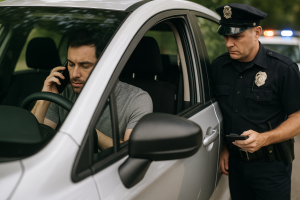 As a criminal defense attorney with over 32 years of experience handling traffic and criminal offenses throughout Cook County, DuPage County, Kane County, Lake County, and the greater Chicagoland area, I’ve seen firsthand how aggressively law enforcement officers enforce the Illinois Distracted Driving Cell Phone Law. This blog post will break down everything you need to know about this law—from its purpose and enforcement tactics to the penalties for violations and tips for staying compliant. Whether you’ve already received a ticket or are trying to avoid one, this guide is for you.
As a criminal defense attorney with over 32 years of experience handling traffic and criminal offenses throughout Cook County, DuPage County, Kane County, Lake County, and the greater Chicagoland area, I’ve seen firsthand how aggressively law enforcement officers enforce the Illinois Distracted Driving Cell Phone Law. This blog post will break down everything you need to know about this law—from its purpose and enforcement tactics to the penalties for violations and tips for staying compliant. Whether you’ve already received a ticket or are trying to avoid one, this guide is for you. Chicago Criminal Lawyer Blog
Chicago Criminal Lawyer Blog


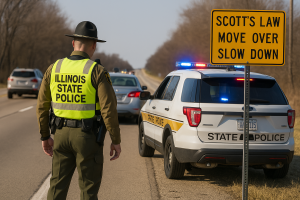 If you’ve recently received a Scott’s Law ticket in Illinois, you’re probably worried about what happens next. You may be asking yourself questions like:
If you’ve recently received a Scott’s Law ticket in Illinois, you’re probably worried about what happens next. You may be asking yourself questions like: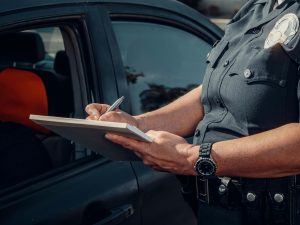 If you have received a traffic ticket in Illinois, you may be concerned about how it will affect your driving record and whether it will lead to a suspension of your driver’s license. The Illinois Secretary of State operates a point system to track traffic violations, and accumulating too many points can have serious consequences. As an experienced Illinois criminal defense and traffic attorney, I have helped countless clients navigate the Illinois point system, fight traffic tickets, and protect their driving privileges. Understanding how this system works is crucial if you are facing a traffic violation and want to minimize the impact on your record.
If you have received a traffic ticket in Illinois, you may be concerned about how it will affect your driving record and whether it will lead to a suspension of your driver’s license. The Illinois Secretary of State operates a point system to track traffic violations, and accumulating too many points can have serious consequences. As an experienced Illinois criminal defense and traffic attorney, I have helped countless clients navigate the Illinois point system, fight traffic tickets, and protect their driving privileges. Understanding how this system works is crucial if you are facing a traffic violation and want to minimize the impact on your record.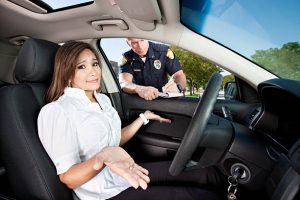

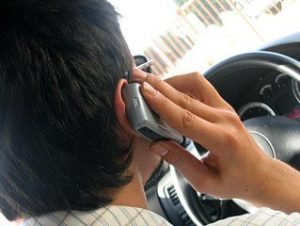 Illinois does not allow motorists to use their cell phone for talking, texting, or using any other means of electronic communication while they are operating their motor vehicle on a public road. The only way you can use your cell phone while driving is through Bluetooth technology, provided that you are 19 and over. In the last couple of years, tickets issued for using cell phones while driving have become common. The laws regarding use of a cell phone while driving have undergone several changes throughout the years. As a result, many motorists are not fully aware of what the rules are when it comes to using their cell phones while driving. Most of the clients who I meet for cases like this frequently tell me that they did not know how restrictive the cell phone usage laws are in Illinois. I want to take this opportunity to explain the cell phone Distracted Driving law in Illinois so that you know what is allowed and what is not allowed in Illinois.
Illinois does not allow motorists to use their cell phone for talking, texting, or using any other means of electronic communication while they are operating their motor vehicle on a public road. The only way you can use your cell phone while driving is through Bluetooth technology, provided that you are 19 and over. In the last couple of years, tickets issued for using cell phones while driving have become common. The laws regarding use of a cell phone while driving have undergone several changes throughout the years. As a result, many motorists are not fully aware of what the rules are when it comes to using their cell phones while driving. Most of the clients who I meet for cases like this frequently tell me that they did not know how restrictive the cell phone usage laws are in Illinois. I want to take this opportunity to explain the cell phone Distracted Driving law in Illinois so that you know what is allowed and what is not allowed in Illinois.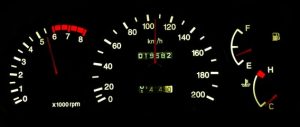 Lately, many of the phone calls I receive start off with clients telling me that they received a “speeding ticket” and asking whether they can really go to jail for their “speeding ticket.” I ask them how fast they were going, and if they were going 26 miles per hour, or more, over the posted speed limit, I have to explain what they are facing. I start off by explaining that what they received is not a speeding ticket. At least it’s not what most people commonly considered to be a speeding ticket. It’s called Aggravated Speeding in llinois. Speeding 26-miles per hour over the posted speed limit is a crime in Illinois. It’s called Aggravated Speeding and can be found at If you did not know this, don’t feel bad. Most people do not realize that speeding 26-miles per hour over the posted speed limit is a crime in Illinois until it happens to them. Sometimes, lawyers don’t even know that driving 26-miles per hour over the posted speed limit is a crime in Illinois (more on that later.) Illinois has made speeding 26-miles per hour over the posted speed limit a crime that carries potential serious consequences. Just like any other crime in Illinois, driving 26-miles per hour over the posted speed limit carries a potential jail sentence that all Illinois driver’s should be aware of. Let me explain.
Lately, many of the phone calls I receive start off with clients telling me that they received a “speeding ticket” and asking whether they can really go to jail for their “speeding ticket.” I ask them how fast they were going, and if they were going 26 miles per hour, or more, over the posted speed limit, I have to explain what they are facing. I start off by explaining that what they received is not a speeding ticket. At least it’s not what most people commonly considered to be a speeding ticket. It’s called Aggravated Speeding in llinois. Speeding 26-miles per hour over the posted speed limit is a crime in Illinois. It’s called Aggravated Speeding and can be found at If you did not know this, don’t feel bad. Most people do not realize that speeding 26-miles per hour over the posted speed limit is a crime in Illinois until it happens to them. Sometimes, lawyers don’t even know that driving 26-miles per hour over the posted speed limit is a crime in Illinois (more on that later.) Illinois has made speeding 26-miles per hour over the posted speed limit a crime that carries potential serious consequences. Just like any other crime in Illinois, driving 26-miles per hour over the posted speed limit carries a potential jail sentence that all Illinois driver’s should be aware of. Let me explain.
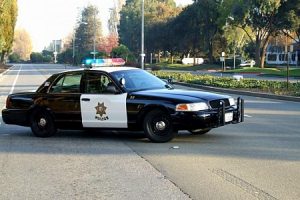 Recently, I was hired to represent several clients who were charged with Failure to Yield to an Emergency Vehicle. During the course of representing these clients, I realized that many Illinois motorists do not fully understand the law when it comes to passing a stationary emergency vehicle that is stopped on the side of the road. I want to take this opportunity to discuss this law and what it involves. If you do not understand the law, and what it requires when you are passing an emergency vehicle that is stopped on the side of the road, you could find yourself with a very serious traffic ticket that could cause you to lose your license and cost you a lot of money.
Recently, I was hired to represent several clients who were charged with Failure to Yield to an Emergency Vehicle. During the course of representing these clients, I realized that many Illinois motorists do not fully understand the law when it comes to passing a stationary emergency vehicle that is stopped on the side of the road. I want to take this opportunity to discuss this law and what it involves. If you do not understand the law, and what it requires when you are passing an emergency vehicle that is stopped on the side of the road, you could find yourself with a very serious traffic ticket that could cause you to lose your license and cost you a lot of money. Early this morning I received a phone call from a prospective client who wanted to talk to me about a “speeding ticket” they received last night for going 30 miles per hour over the posted speeding ticket on a local highway. I receive such phone calls from prospective clients almost every day. Very few people calling me for cases like this really understand what they are facing. I have written about cases like this because I handle many cases involving Aggravated or Excessive speeding. These phone calls usually start off with the prospective client wanting to talk about a “speeding ticket” they recently received. Once I find out that the “speeding ticket” is for 26 miles per hour, or more, over the posted speed limit, I usually have to explain to the prospective clients that what they are facing is not a simple speeding ticket. If you are cited for going 26 miles an hour, or more, over the posted speed limit, what you are facing is an actual criminal charge of Aggravated or Excessive Speding. Going 26 miles or more, over the posted speed limit is an actual crime in Illinois that carries a potential jail sentence. Let me explain.
Early this morning I received a phone call from a prospective client who wanted to talk to me about a “speeding ticket” they received last night for going 30 miles per hour over the posted speeding ticket on a local highway. I receive such phone calls from prospective clients almost every day. Very few people calling me for cases like this really understand what they are facing. I have written about cases like this because I handle many cases involving Aggravated or Excessive speeding. These phone calls usually start off with the prospective client wanting to talk about a “speeding ticket” they recently received. Once I find out that the “speeding ticket” is for 26 miles per hour, or more, over the posted speed limit, I usually have to explain to the prospective clients that what they are facing is not a simple speeding ticket. If you are cited for going 26 miles an hour, or more, over the posted speed limit, what you are facing is an actual criminal charge of Aggravated or Excessive Speding. Going 26 miles or more, over the posted speed limit is an actual crime in Illinois that carries a potential jail sentence. Let me explain.